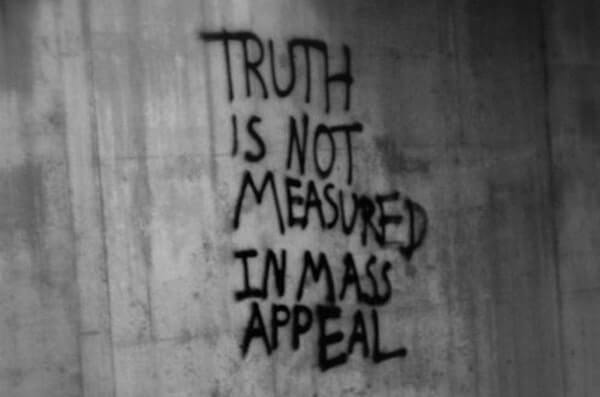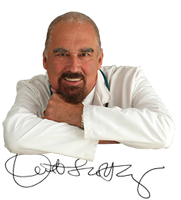Mark Zuckerberg “MD” and his army of Facebook minions (geeks, in other words) have together between them some 300,000 hours of clinical experience, treating patients and testing their diagnostic skills. They have studied anatomy and physiology extensively, plus detailed scientific method, before being allowed to judge, edit or delete pages reporting on health matters by other HIGHLY QUALIFIED doctors and specialists….
Oh no, wait a minute! That’s completely wrong!! Neither Zuckerberg, nor his army of stupid young jerks has any clinical experience at all! They are NOT doctors. Not one of them has even so much as a first aid certificate and would probably pass out at the sight of real blood! They know ABSOLUTELY NOTHING, yet they have assumed to themselves the dangerous power to pronounce even authoritative scientific medical papers by skilled doctors as wrong—or even more absurd: fake!
Do you smell a rat in this? How could untrained people know what is fake news and what isn’t? How can these medically illiterate nobodies judge the worth of a scientific paper? The number of LIKES or SHARES? Ha. I don’t think so.

I “borrowed” this from an article by Alan Philips at medium.com
Here’s the rub: A Stanford study released last year by the NCBI (which is under the National Institutes of Health), showed that masks do absolutely nothing to help prevent the spread of COVID-19 and their use is even harmful.
Yet FB policy is clear: Content that discourages mask wearing is banned, including posts that say face masks are connected to 5G technology, that masks can make the wearer sick or that health authorities do not recommend that healthy people wear masks.
So even though doctor scientists at prestigious Stanford University have come out with serious doubts, nobody is allowed to say that: no debate, no citing the scientific refence allowed even, no counter-arguments, we are forced to accept the “official” position, WHICH HAS NO SCIENCE BEHIND IT.
This is the way FB says it is, therefore it’s 100% true and any other view is fake, evil, misleading… whatever!
This has all the makings of the world’s end, for Gawd’s sake. I mean, where do we go from here? All human progress has been successful only when the existing way of things is questioned. Some clever doctor thought that cleanliness, hygiene and hand washing would prevent surgical sepsis. Turns out he was right (Joseph Lister, for example).
Another wise guy had the idea of putting the patient to sleep with ether before sawing his leg off. Eventually there were better sleep-inducing anesthetics than ether—but it was a good start.
Alexander Fleming noticed that penicillin mold prevented bacteria from growing on a plate in his lab. He thought it might work to kill off bacteria in a living patient. It was thought worthwhile to give it a try and… hey presto, it worked!
Of course there were proto-Facebook fact-crushers even in the past, who said anesthetics can’t work, antibiotics from a mold is crazy, and washing of hands after taking a pee and then going to the operating theatre was an intrusion on surgeons’ rights and an attack on their good name!
BUT: and this is the big BUT… Joseph Lister was not eliminated and prevented from talking to others about his ideas. Boston dentist William T.G. Morton was not banned from communicating with others what happened when he administered ether, not locked in a room and told to shut up and go away (thank God).
Alexander’s visionary idea was actually welcomed.
The important point is that discussion was kept opened. Eventually, what was once novel and crazy became accepted and then mainstream even! You may have even heard the medical joke, based, I think, on an original witticism by French philosopher Michel de Montaigne (1533-1592). But I have heard a similar version attributed to Arthur Schopenhauer.
There are several stages of any new medical idea; I quoted these in my book Food and Environmental Allergies (Thorson’s, 1992).
- You must be mad
- There might be something in it.
- There might be something in it—but where’s the PROOF?
and then finally: - We knew that all long.
Did you know Galileo (1564 – 1642) went to medical school? Not many people do. His father wanted him to become a doctor and sent him to study medicine at the University of Pisa. While there he discovered a natural talent for math, and eventually left medical school to pursue mathematics.
He invented the first astronomical telescope and using the new device, Galileo became the first person to observe the Moon up close. Continuing his astronomical research, he would use his telescope to establish that small moons circled Jupiter, and he closely observed the rings of Saturn and the phases of Venus. All this was heresy because God made everything and it was unchanging, they said.

But the forces of Facebook were at work, even then. The Church elders refused to look through his device and banned anyone from looking… They would be burned at the stake if they did, or even spoke of such mischief! Galileo himself was very lucky not to be put to death for heresy. As it was, he was under house arrest for the rest of his life: they sort of took down his Facebook page, huh?
Here’s a longer story you may not know:
When neurologist Stanley Prusiner insisted that mad cow disease and Creutzfeldt-Jakob disease are caused not by viruses, bacteria, or fungi but by infectious proteins, which he dubbed “prions” in 1982, even he admitted that the idea was “clearly heretical.”
It was instantly controversial, particularly among Prusiner’s infectious disease and virology colleagues who had staked their entire careers on searching for and studying the pathogens behind these diseases. They simply could not accept that a mere protein, with its lack of genetic material, could transmit disease. (Some still cannot.) Prusiner himself described this first publication as setting off a “firestorm,” and he suffered a series of “very vicious” personal attacks in the press. [Nobelprize.org. Stanley B. Prusiner – Biographical. The Nobel Foundation. http://www.nobelprize.org/nobel_prizes/medicine/laureates/1997/prusiner-bio.html Accessed November 9, 2015].
He would naturally have been taken down and banned by the present Facebook, Google, Twitter, mob of thought police.
But Prusiner continued publishing, however, further characterizing prions and adding diseases to the list of those he believed were caused by infectious proteins. Slowly some in the medical community accepted his hypotheses.
And then in 1996, more than a decade after he had initially described prions, the first cases of the human form of mad cow disease were reported in Britain. Mad cow disease, or bovine spongiform encephalopathy, had previously been identified as a prion disease by Prusiner.
One year later, in 1997, Prusiner won the Nobel Prize for his discovery of prions!
That’s how we make progress. A duel of wits and observations. Of course there are losers and winners. The losers sometimes take it very hard. There is still, today, a Flat Earth Society in London (I’m not kidding)! Of course it may just be a joke, but most of us now regard our planet as a rounded orb!
If Facebook, Google, Twitter, etc. had had their way, the earth would remain forever flat, there would be no toilet paper, and we would still be hacking of limbs without an anesthetic, with dirty hands, causing a lethal infection (sepsis), which could not then be cleared up by a course of penicillin.
They are—to use a delicious phrase from my old and lamented friend Lawrence Dickey—striking an effective blow for ignorance.
To your good health,

